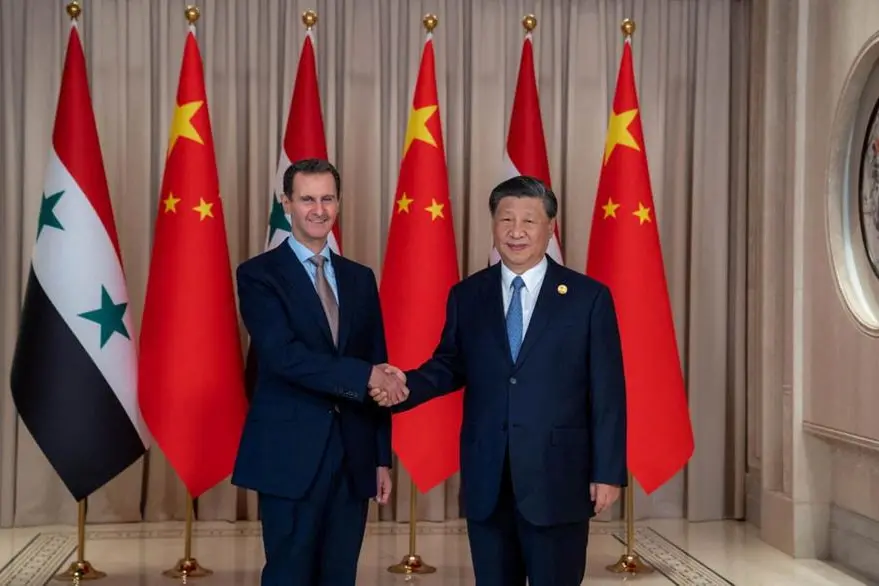PHOTO
BEIJING - China's President Xi Jinping called on the West to lift sanctions on Syria and offered Beijing's help in rebuilding the war-shattered country on Friday during rare talks with Syria's long ostracised leader Bashar al-Assad.
Their meeting in the Chinese city of Hangzhou gave a boost to Assad's campaign to return to the global stage while allowing China to advance its strategic interests in the Middle East, where it is already aligned with Iran and Saudi Arabia.
"China opposes interference by external forces in Syria's internal affairs... and urges all relevant countries to lift illegal unilateral sanctions against Syria," said a readout of the talks published by Chinese state media.
Xi also told Assad that China would help Syria to rebuild its ruined economy and counter domestic unrest, by upgrading ties to a "strategic partnership".
Xi's endorsement should strengthen Assad's efforts to plot a a path back from what is effectively pariah status. Syria joined China's Belt and Road Initiative in 2022 and was welcomed back into the Arab League in May.
In Chinese diplomacy, a "strategic partnership" implies closer coordination on regional and international affairs, including in the military sphere. It is one grade below what Beijing calls a "comprehensive strategic partnership".
Western sanctions on Syria have been steadily tightened since the early days of a civil war that began in 2011 with a crackdown on protests and went on to kill hundreds of thousands of people and displace millions.
Assad's government, backed by Russia and Iran, now controls most Syrian territory and has re-established ties in recent years with Arab neighbours that once backed his opponents.
SANCTIONS DETERRENT
Syria desperately needs foreign investment for its infrastructure and industry. Its dire economic situation has triggered protests in southern Syria in which crowds have called for the president's removal.
However, analysts doubt that Chinese firms will rush back to Syria as they would risk becoming entangled in U.S. sanctions under the 2020 Caesar Act that can freeze the assets of anyone dealing with the country.
Chinese investors will also have to consider Syria's poor security and parlous financial situation.
Beijing has stepped up its diplomatic engagement with the Middle East in recent years, and in March helped broker a surprise deal between long-standing regional rivals Saudi Arabia and Iran to end their seven-year diplomatic rift.
Citing flagship initiatives aimed at building up infrastructure along the ancient Silk Road and promoting China's approach to global security, Xi extended support for Syrian efforts to improve relations with other Arab countries. "China is reinforcing its message that it is there to try and help countries resolve their disputes and that peace stems from economic development," said Matteo Legrenzi, professor of international relations at Ca'Foscari, University of Venice.
"(China) is trying to perform a useful role from a distance. As they did with the Iran-Saudi Arabia rapprochement deal," he added. (Reporting by Joe Cash and Ella Cao; Editing by Gareth Jones)




















